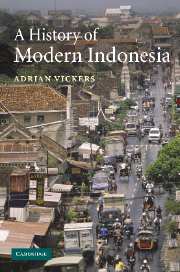Book contents
- Frontmatter
- Contents
- List of figures
- List of maps
- Acknowledgements
- A note on spelling, pronunciation and names
- Chronology
- Introduction
- 1 Our colonial soil
- 2 Cultures of the countryside
- 3 ‘To assail the colonial machine’
- 4 The Revolution
- 5 Living in the atomic age
- 6 From Old to New Orders
- 7 Terror and development in happy land
- 8 Age of globalisation, age of crisis
- Biographies of key figures
- Abbreviations and glossary
- Notes
- Bibliography
- Index
- LIST OF MODERN HISTORIES
8 - Age of globalisation, age of crisis
Published online by Cambridge University Press: 05 June 2012
- Frontmatter
- Contents
- List of figures
- List of maps
- Acknowledgements
- A note on spelling, pronunciation and names
- Chronology
- Introduction
- 1 Our colonial soil
- 2 Cultures of the countryside
- 3 ‘To assail the colonial machine’
- 4 The Revolution
- 5 Living in the atomic age
- 6 From Old to New Orders
- 7 Terror and development in happy land
- 8 Age of globalisation, age of crisis
- Biographies of key figures
- Abbreviations and glossary
- Notes
- Bibliography
- Index
- LIST OF MODERN HISTORIES
Summary
The view that history is the story of the lives of those who want to grasp the power of the throne means that in our cultural life we know nothing but power. We have not known humanity as the driving concept in life and in our traditional art and culture. Forgive me if I am mistaken.
Pramoedya Ananta ToerOPENNESS AND THE FALL OF SUHARTO
The 1980s was an exceptional period in Indonesia's history. The near monopoly on violence by the government meant that it could maintain an image of quiescence that assured it of international support. Western countries built up close relations with Indonesia, particularly with the military, to whom Britain sold arms, the US provided intelligence training and Australia co-sponsored exercises with the Special Forces Command, the elite troops responsible for maintaining control in the rebellious provinces. Inside and outside Indonesia, authoritarianism was seen as the price the country paid for development, a view that served the interests of Western governments keen to support the operations of multinational oil and mineral companies in Indonesia.
There was always some room for dissent in the New Order. Pramoedya and his fellow leftists who were sent from Buru to house arrest could not express themselves in the mass media, but many others could. In the mid-1980s a coalition of discontented military figures, including former head of the armed forces, General Nasution, former prime ministers, conservative regional politicians who had been important in the 1950s, and socialists who had been pushed out of power, organised a ‘Petition of 50’ which protested against corruption and abuse of power.
- Type
- Chapter
- Information
- A History of Modern Indonesia , pp. 197 - 224Publisher: Cambridge University PressPrint publication year: 2005



